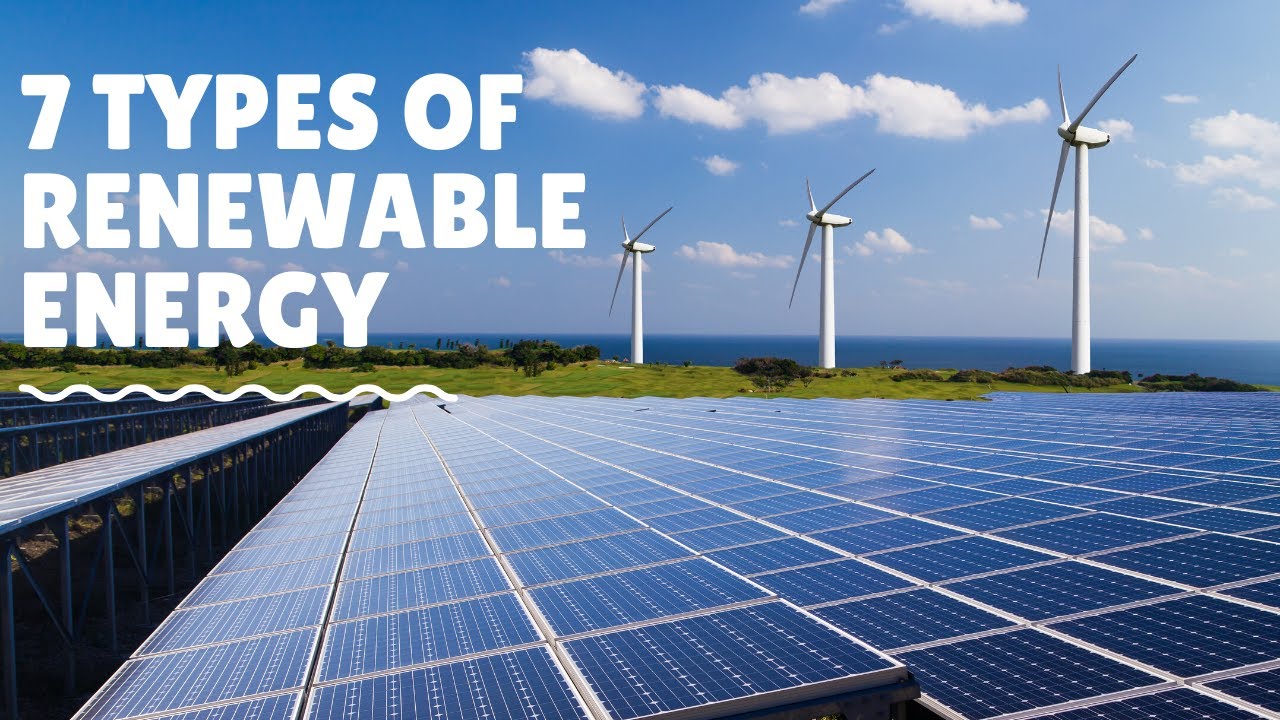
Introduction to Renewable Energy
In the face of climate change and the depletion of fossil fuels, renewable energy has emerged as a crucial alternative. This comprehensive guide aims to explore various forms of renewable energy, their benefits, challenges, and their role in achieving a sustainable future.
What is Renewable Energy?
Renewable energy refers to energy derived from natural processes that are replenished constantly. Unlike fossil fuels, which take millions of years to form, renewable energy sources are sustainable and can be harnessed without depleting them. The primary types of renewable energy include:
- Solar Energy
- Wind Energy
- Hydropower
- Geothermal Energy
- Biomass Energy
Types of Renewable Energy
Solar Energy
Solar energy is harnessed from the sun’s rays using solar panels or photovoltaic cells. It is one of the most abundant energy sources available. The advantages of solar energy include:
- Sustainability: Solar energy is inexhaustible and available worldwide.
- Reduced Electricity Bills: Homeowners can save significantly on energy costs.
- Low Maintenance Costs: Solar systems require minimal upkeep.
Wind Energy
Wind energy is generated by converting the kinetic energy from wind into mechanical power, typically through wind turbines. This energy source has seen significant growth in recent years. Key benefits include:
- Clean and Sustainable: Wind energy produces no emissions during operation.
- Job Creation: The wind energy sector has created numerous jobs in manufacturing, installation, and maintenance.
- Cost-Effective: The cost of wind energy has decreased significantly, making it competitive with fossil fuels.
Hydropower
Hydropower, or hydroelectric energy, is generated by the movement of water. Dams are often used to create reservoirs, which can then be tapped for energy. Advantages of hydropower include:
- Reliability: Hydropower plants can generate electricity continuously and are capable of meeting peak demand.
- Storage Capability: Water can be stored and released as needed, providing flexibility in energy supply.
- Economic Benefits: Hydropower projects can boost local economies through job creation and infrastructure development.
Geothermal Energy
Geothermal energy utilizes heat from beneath the Earth’s surface for electricity generation and direct heating applications. This energy source is particularly effective in regions with volcanic activity. Benefits include:
- Low Emissions: Geothermal plants emit far fewer greenhouse gases compared to fossil fuel plants.
- Baseload Power: Unlike solar and wind, geothermal energy can provide a constant power supply.
- Small Land Footprint: Geothermal facilities require less land compared to solar and wind installations.
Biomass Energy
Biomass energy is derived from organic materials, such as plant and animal waste. It can be used for heating, electricity generation, and as a fuel for vehicles. Key points about biomass energy include:
- Waste Reduction: Biomass energy helps in managing waste by converting it into useful energy.
- Carbon Neutral: The CO2 released during biomass combustion is offset by the CO2 absorbed during the growth of the biomass.
- Versatile: Biomass can be converted into various forms of energy, including gas, liquid, and solid fuels.
Benefits of Renewable Energy
The transition to renewable energy sources offers numerous benefits that are critical for both the environment and the economy. These include:
- Environmental Protection: Renewable energy significantly reduces greenhouse gas emissions, helping to combat climate change.
- Energy Independence: Countries can reduce their dependence on imported fossil fuels by investing in local renewable resources.
- Economic Growth: The renewable energy sector has the potential to create millions of jobs worldwide.
- Improved Public Health: By reducing air pollution, renewable energy can lead to better health outcomes for communities.
Challenges Facing Renewable Energy
Despite its many advantages, the transition to renewable energy is not without challenges. Some of the key obstacles include:
- Intermittency: Sources like solar and wind are not always available, necessitating the development of energy storage solutions.
- Infrastructure Costs: The initial investment in renewable energy infrastructure can be high, though it often pays off in the long term.
- Land Use: Some renewable energy projects require significant land, which can lead to conflicts over land use and biodiversity.
- Regulatory Hurdles: Policies and regulations may lag behind technological advancements, slowing the adoption of renewable energy solutions.
Future of Renewable Energy
The future of renewable energy looks promising as technology continues to evolve and the global community recognizes the urgency of addressing climate change. Key trends to watch include:
- Technological Innovations: Advances in energy storage, grid management, and efficiency are likely to enhance the viability of renewable sources.
- Decentralized Energy Systems: The rise of microgrids and community solar projects will empower individuals and communities to produce their own energy.
- Policy Support: Governments are increasingly implementing policies that support renewable energy development, including tax incentives and subsidies.
- Corporate Sustainability Initiatives: Many companies are committing to renewable energy as part of their sustainability goals, driving further investment in the sector.
Conclusion
In conclusion, renewable energy represents a vital component of a sustainable future. As we face the realities of climate change and environmental degradation, the transition to renewable energy sources is not just beneficial but essential. By understanding the various types of renewable energy, their benefits, challenges, and future potential, we can collectively work towards a cleaner, more sustainable world. The path ahead may be fraught with challenges, but the rewards of a renewable energy future far outweigh the hurdles we must overcome.

